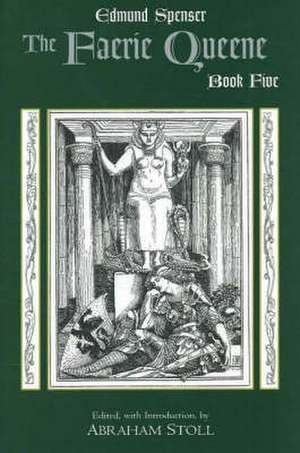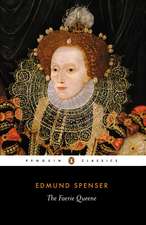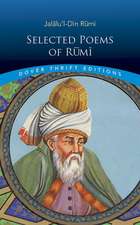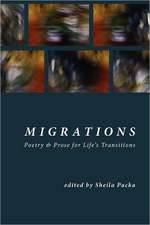The Faerie Queene, Book Five: Hackett Classics
Autor Edmund Spenser Editat de Abraham Stollen Limba Engleză Hardback – 14 mar 2006
Book Five of The Faerie Queene is Spenser's Legend of Justice. It tells of the knight Artegall's efforts to rid Faerie Land of tyranny and injustice, aided by his sidekick Talus and the timely intervention of his betrothed, the woman warrior Britomart. As allegory, Book Five figures forth ideal concepts of justice and explores how justice may be applied in a real world complicated by social inequality, female rule, political guile, and excessive violence. At the same time, as historical allegory, it retells a number of the most important events of early modern England, in particular the controversies surrounding the colonization of Ireland. An integral part of the larger poem, Book Five also stands on its own as one of the most challenging meditations on justice in English literature.
| Toate formatele și edițiile | Preț | Express |
|---|---|---|
| Paperback (1) | 100.51 lei 22-36 zile | |
| Hackett Publishing Company, In – 14 mar 2006 | 100.51 lei 22-36 zile | |
| Hardback (1) | 244.43 lei 22-36 zile | |
| Hackett Publishing Company, In – 14 mar 2006 | 244.43 lei 22-36 zile |
Din seria Hackett Classics
-
 Preț: 65.88 lei
Preț: 65.88 lei - 15%
 Preț: 195.50 lei
Preț: 195.50 lei - 14%
 Preț: 184.08 lei
Preț: 184.08 lei - 7%
 Preț: 81.60 lei
Preț: 81.60 lei - 8%
 Preț: 345.52 lei
Preț: 345.52 lei - 7%
 Preț: 143.79 lei
Preț: 143.79 lei - 8%
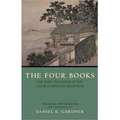 Preț: 106.45 lei
Preț: 106.45 lei - 8%
 Preț: 314.30 lei
Preț: 314.30 lei - 14%
 Preț: 171.00 lei
Preț: 171.00 lei - 11%
 Preț: 209.65 lei
Preț: 209.65 lei - 8%
 Preț: 125.82 lei
Preț: 125.82 lei - 7%
 Preț: 108.56 lei
Preț: 108.56 lei - 8%
 Preț: 309.90 lei
Preț: 309.90 lei - 9%
 Preț: 318.62 lei
Preț: 318.62 lei - 8%
 Preț: 293.06 lei
Preț: 293.06 lei - 18%
 Preț: 336.33 lei
Preț: 336.33 lei - 8%
 Preț: 292.34 lei
Preț: 292.34 lei - 8%
 Preț: 138.63 lei
Preț: 138.63 lei - 11%
 Preț: 210.28 lei
Preț: 210.28 lei - 7%
 Preț: 74.13 lei
Preț: 74.13 lei - 13%
 Preț: 263.30 lei
Preț: 263.30 lei - 13%
 Preț: 262.04 lei
Preț: 262.04 lei - 8%
 Preț: 85.81 lei
Preț: 85.81 lei - 12%
 Preț: 269.79 lei
Preț: 269.79 lei - 7%
 Preț: 101.44 lei
Preț: 101.44 lei - 8%
 Preț: 92.26 lei
Preț: 92.26 lei - 14%
 Preț: 183.57 lei
Preț: 183.57 lei - 9%
 Preț: 304.37 lei
Preț: 304.37 lei - 8%
 Preț: 294.64 lei
Preț: 294.64 lei - 14%
 Preț: 171.16 lei
Preț: 171.16 lei - 7%
 Preț: 128.27 lei
Preț: 128.27 lei - 8%
 Preț: 299.09 lei
Preț: 299.09 lei - 13%
 Preț: 264.76 lei
Preț: 264.76 lei - 8%
 Preț: 332.07 lei
Preț: 332.07 lei - 13%
 Preț: 246.98 lei
Preț: 246.98 lei - 13%
 Preț: 243.54 lei
Preț: 243.54 lei - 8%
 Preț: 331.87 lei
Preț: 331.87 lei - 8%
 Preț: 310.67 lei
Preț: 310.67 lei - 7%
 Preț: 323.40 lei
Preț: 323.40 lei - 13%
 Preț: 265.61 lei
Preț: 265.61 lei - 13%
 Preț: 175.48 lei
Preț: 175.48 lei - 8%
 Preț: 327.47 lei
Preț: 327.47 lei - 13%
 Preț: 231.00 lei
Preț: 231.00 lei - 13%
 Preț: 243.18 lei
Preț: 243.18 lei
Preț: 244.43 lei
Preț vechi: 280.93 lei
-13% Nou
Puncte Express: 367
Preț estimativ în valută:
46.79€ • 50.84$ • 39.33£
46.79€ • 50.84$ • 39.33£
Carte disponibilă
Livrare economică 31 martie-14 aprilie
Preluare comenzi: 021 569.72.76
Specificații
ISBN-13: 9780872208025
ISBN-10: 0872208028
Pagini: 224
Ilustrații: Illustrations
Dimensiuni: 9 x 215 x 139 mm
Greutate: 0.37 kg
Editura: Hackett Publishing Company, In
Colecția Hackett Publishing Company, Inc.
Seria Hackett Classics
ISBN-10: 0872208028
Pagini: 224
Ilustrații: Illustrations
Dimensiuni: 9 x 215 x 139 mm
Greutate: 0.37 kg
Editura: Hackett Publishing Company, In
Colecția Hackett Publishing Company, Inc.
Seria Hackett Classics
Recenzii
This edition of book 5 of The Faerie Queene is a welcome contribution. Stoll presents a text that will be very useful in the classroom. The decision to make available individual (or in two cases, paired) books of the romance will make it possible for instructors to teach their preferred books of the romance; Stoll's edition of book 5 will certainly increase the likelihood that the Legend of Justice will reappear in undergraduate classrooms, introducing students to a text in which Spenser scholars are increasingly interested. We will all benefit from that. --Andrew Fleck, Sixteenth Century Journal
Two editions of Spenser are both from the same series, published by Hackett Publishing Company, which is providing inexpensive paperback volumes of The Faerie Queene , under the general editorship of Abraham Stoll. The volumes printed this year, books 1 and 5, are edited, respectively, by Carol V. Kaske and Stoll himself. A single volume combining books 3 and 4, edited by Dorothy Stephens, is forthcoming, as is book 6, edited by Andrew Hadfield. The volumes are attractively printed, with notes at the bottom of the page. Each volume includes an introduction, the Letter to Raleigh , a brief 'Life of Edmund Spenser,' textual notes, a glossary, an 'Index of Characters,' and a bibliography. Kaske's introduction to book 1 forms an accessible student guide, touching on a wide range of topics, from versification, genre, and allegory, to 'Spenser's Religious Milieu.' At the same time, there are fresh flashes of insight, no doubt derived from Kaske's long experience of teaching a complex poem. . . . Eschewing 'political and biographical allegory (p. xvi), the notes offer plenty of help to the student seeking to get behind the veil of Spenser's dark conceit, for they emphasize symbolism and historical context, especially literary context or 'sources.' Stoll's edition of book 5 of the Faerie Queene includes a judicious introduction of considerable merit. Not simply well written and learned, it partitions the information in an accessible and interesting way. Stoll is fully attuned to the recent controversies surrounding the Legend of Justice, but he does more than record them for the student reader; he manages to express sympathy for both poet and poem. Students need to hear the historical nature of Spenser's achievement for English literature, and Stoll leads nicely with this topic: book 5 is 'one of the most challenging meditations on justice in English literature' (p. ix). Stoll is as sensitive to the violence of book 5 as he is to its strangeness and beauty. Students will appreciate the short inventory of important works of criticism at the end of each section. The notes are not as full as Kaske's, but perhaps appropriately so. . . . I look forward to having access to the remaining volumes in this series. --Patrick Cheney, Studies in English Literature 1500-1900
Two editions of Spenser are both from the same series, published by Hackett Publishing Company, which is providing inexpensive paperback volumes of The Faerie Queene , under the general editorship of Abraham Stoll. The volumes printed this year, books 1 and 5, are edited, respectively, by Carol V. Kaske and Stoll himself. A single volume combining books 3 and 4, edited by Dorothy Stephens, is forthcoming, as is book 6, edited by Andrew Hadfield. The volumes are attractively printed, with notes at the bottom of the page. Each volume includes an introduction, the Letter to Raleigh , a brief 'Life of Edmund Spenser,' textual notes, a glossary, an 'Index of Characters,' and a bibliography. Kaske's introduction to book 1 forms an accessible student guide, touching on a wide range of topics, from versification, genre, and allegory, to 'Spenser's Religious Milieu.' At the same time, there are fresh flashes of insight, no doubt derived from Kaske's long experience of teaching a complex poem. . . . Eschewing 'political and biographical allegory (p. xvi), the notes offer plenty of help to the student seeking to get behind the veil of Spenser's dark conceit, for they emphasize symbolism and historical context, especially literary context or 'sources.' Stoll's edition of book 5 of the Faerie Queene includes a judicious introduction of considerable merit. Not simply well written and learned, it partitions the information in an accessible and interesting way. Stoll is fully attuned to the recent controversies surrounding the Legend of Justice, but he does more than record them for the student reader; he manages to express sympathy for both poet and poem. Students need to hear the historical nature of Spenser's achievement for English literature, and Stoll leads nicely with this topic: book 5 is 'one of the most challenging meditations on justice in English literature' (p. ix). Stoll is as sensitive to the violence of book 5 as he is to its strangeness and beauty. Students will appreciate the short inventory of important works of criticism at the end of each section. The notes are not as full as Kaske's, but perhaps appropriately so. . . . I look forward to having access to the remaining volumes in this series. --Patrick Cheney, Studies in English Literature 1500-1900
